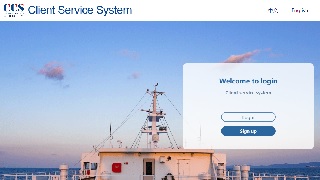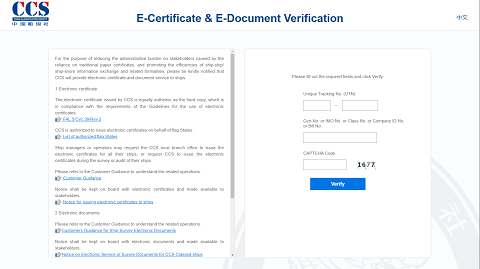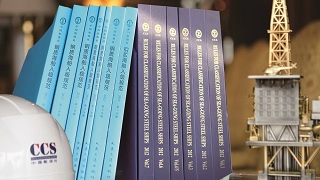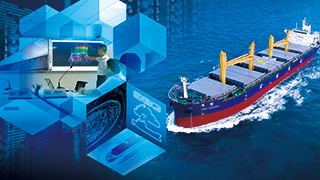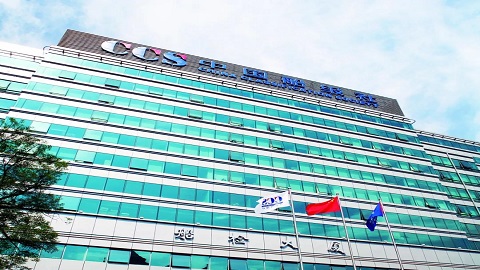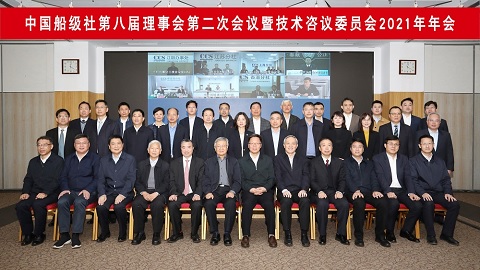11/13.2020
The China Classification Society
(CCS) is the only professional organization engaged in the ship classification
survey business in China and a full member of the International Association of
Classification Societies (IACS). CCS formulates classification rules for ships
and offshore installations and is entrusted by China MSA to prepare technical
regulations for ships and offshore installations. CCS has scientific research
information institutions such as the Rules and Technology Center (CCS Shanghai
Rules & Research Institute), CCS Wuhan Rules & Research Institute,
Offshore Engineering Technology Center, Technology Research and Development
Center, Science and Technology Innovation Test Center, and Information Center.Since its establishment, CCS has
gradually formed a system of rules and regulations for sea-going vessels
(including ocean-going fishing vessels), inland vessels, offshore mobile
drilling vessels, fixed platforms, and container ships through the study of international
advanced technical standards and the accumulation of experience in the process
of plan approval and survey. The system of rules and guidelines for ships
covers high-tech ship types such as very large crude carriers (VLCC), very
large container ships, very large ore carriers, membrane liquefied natural gas
(LNG) carriers, and large vehicle carriers, supporting the development of the
shipbuilding industry in China, and promoting the safety of water transport.CCS concentrates its efforts on
the research of key technologies for large and high-tech ship types and for
offshore engineering, green smart technologies, and new energy application
technologies, and has issued standards such as the Rules for Green Eco-ships,
Rules for Intelligent Ships, and Rules for Cruise Ships. The rules for the structure of
bulk carriers and oil tankers have passed the International Goal-based Ship
Construction Standards for Bulk Carriers and Oil Tankers (IMO GBS) audit
without defects, and the audit results are the best among the members of the
International Association of Classification Societies. Fruitful results have
been achieved in the research of key technologies such as intelligent
ships/unmanned ships, application of LNG power on water, very large container
ships, very large ore ships, LNG carriers, mobile platforms and floating units,
reaching the international leading or advanced level. A large number of very
large, high-performance, high-value-added ships and offshore mobile platforms
have joined CCS. The system of CCS rules and standards and the technical
service capabilities are widely accepted by international and domestic
industries.CCS continues to increase its
influence in the international maritime community, providing strong technical
support for the Chinese government to participate in international maritime
affairs, safeguard national maritime rights and interests, and support the
development of related industries. CCS actively participates in the
formulation of international maritime technical standards and submits more than
half of the Chinese proposals to the International Maritime Organization on an
annual average basis. CCS has played an important role in the formulation of
international maritime technical standards including the Ballast Water Management
Convention, Hong Kong Convention, Common Structural Rules for Oil Tankers and
Bulk Carriers, Energy Efficiency Design Index for new
ships, Code on Noise Levels on Board Ships, Polar Code, IGF Code, and
asbestos-free thresholds, safeguarding the interests of the country and related
industries, and making great contributions to the development of international
maritime technology.In the future, CCS will continue
to improve its capabilities in scientific and technological innovation and
leading development, to comprehensively form a scientific and technological
work system with the ability for strong independent innovation, high-level
rules and standards, and scientific evaluation and experiment, and fulfil the
mission of “safety, environmental protection, and creating value for clients
and the society”. For more details, please contact
us:Sea Ship: CCS Shanghai Rules
& Research Institute, Tel: 021-61089200, E-mail: ccssr@ccs.org.cnRiver Ship: CCS Wuhan Rules &
Research Institute, Tel: 027-85822350, E-mail: ccswra@ccs.org.cn
Offshore Engineering: Offshore
Engineering Technology Center, Tel: 022-62022888, E-mail: ot@ccs.org.cn

